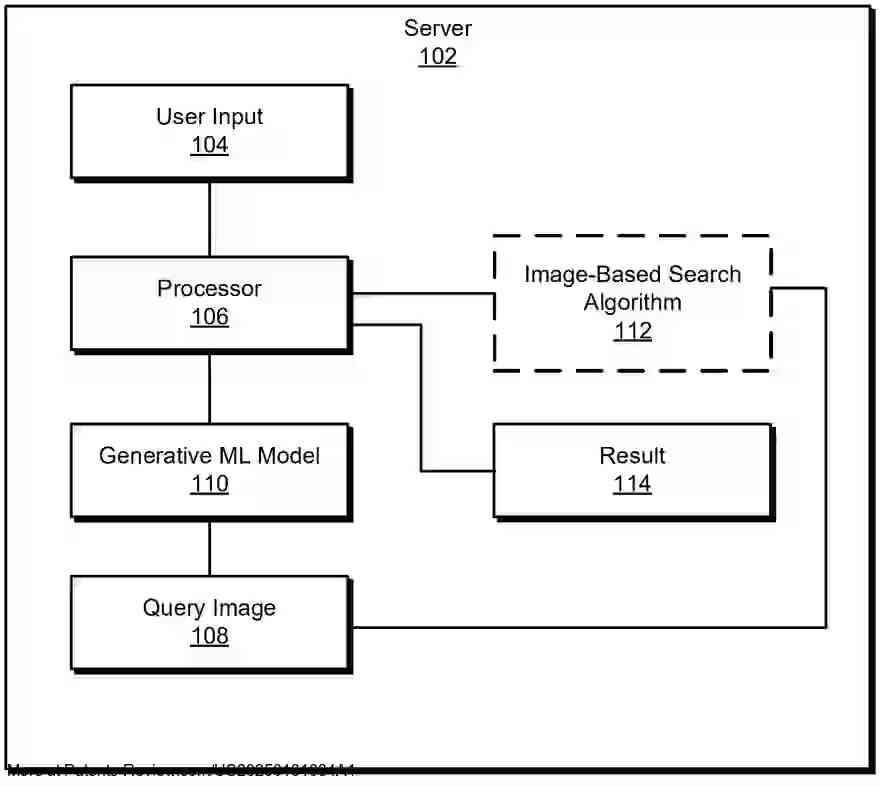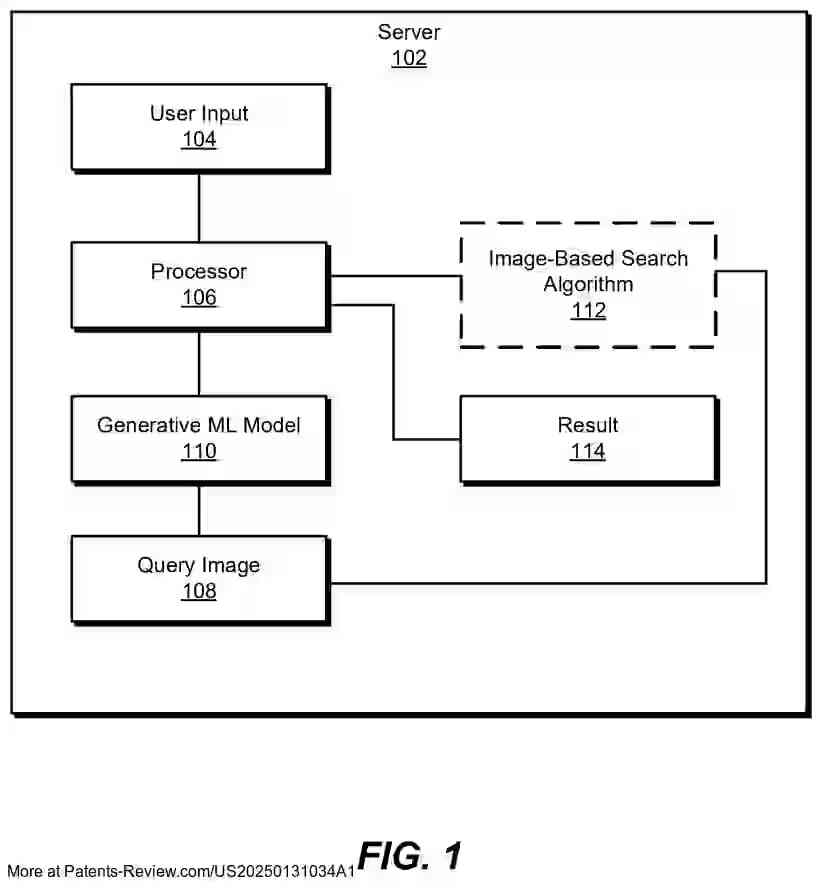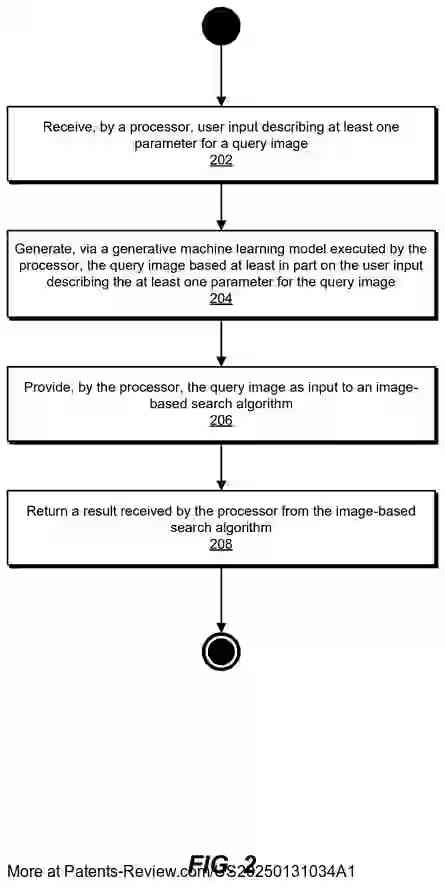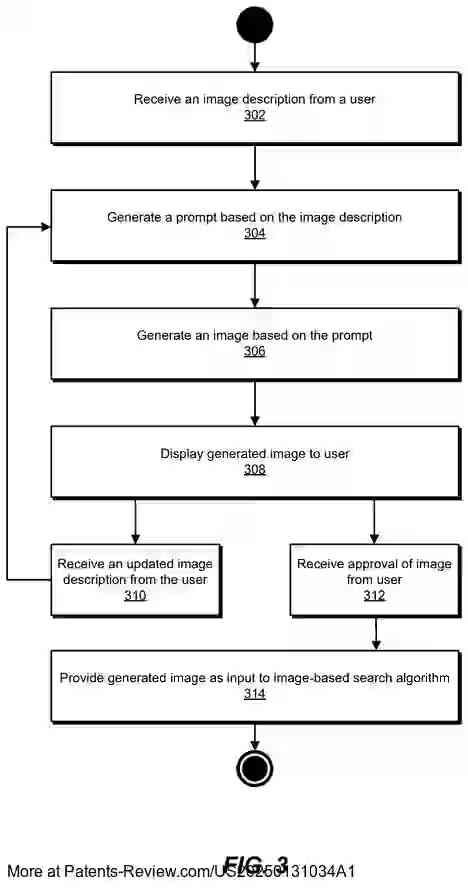SYSTEMS AND METHODS FOR GENERATING A QUERYABLE IMAGE FROM TEXT
US20250131034
2025-04-24
Physics
G06F16/532
Inventors:
Applicant:
Drawings (4 of 6)




Smart overview of the Invention
The patent application describes a system that enables users to generate a queryable image from text input. This process involves using a generative machine learning model to create an image based on user-defined parameters. The generated image is then utilized as input for an image-based search algorithm, which returns results that match the query image. This method enhances the search experience by allowing users to search with images rather than relying solely on text descriptions.
Background
Traditional search engines primarily rely on text-based queries to find images, which can be limiting when users do not have a specific image to use as a reference. Image-based search algorithms offer a more precise alternative by comparing images directly. However, creating a suitable query image can be challenging for users without the necessary skills or tools. This system bridges that gap by enabling users to generate images for search purposes using simple text inputs.
Technical Approach
The system utilizes advanced generative machine learning models, such as Generative Adversarial Networks (GANs) or diffusion models, trained on large datasets of images and text prompts. These models can transform user input into detailed images that serve as effective search queries. Users can provide input in various forms, including text descriptions or doodles, and refine the generated images through iterative feedback before finalizing their search query.
Implementation Details
The process begins with the system receiving user input that specifies parameters for the desired query image. The generative ML model then creates an initial version of the image, which can be modified based on further user input. This iterative process allows for fine-tuning of the query image to better match user expectations. Once finalized, the query image is submitted to an image-based search algorithm, which returns relevant results.
Applications and Benefits
This technology provides significant benefits by simplifying the process of conducting image-based searches. By allowing users to create precise query images from simple inputs, it opens up new possibilities for finding specific visual content online. Additionally, the system's ability to generate training data for ML models through paired images and captions further enhances its utility in various applications, from personal use to professional content creation.